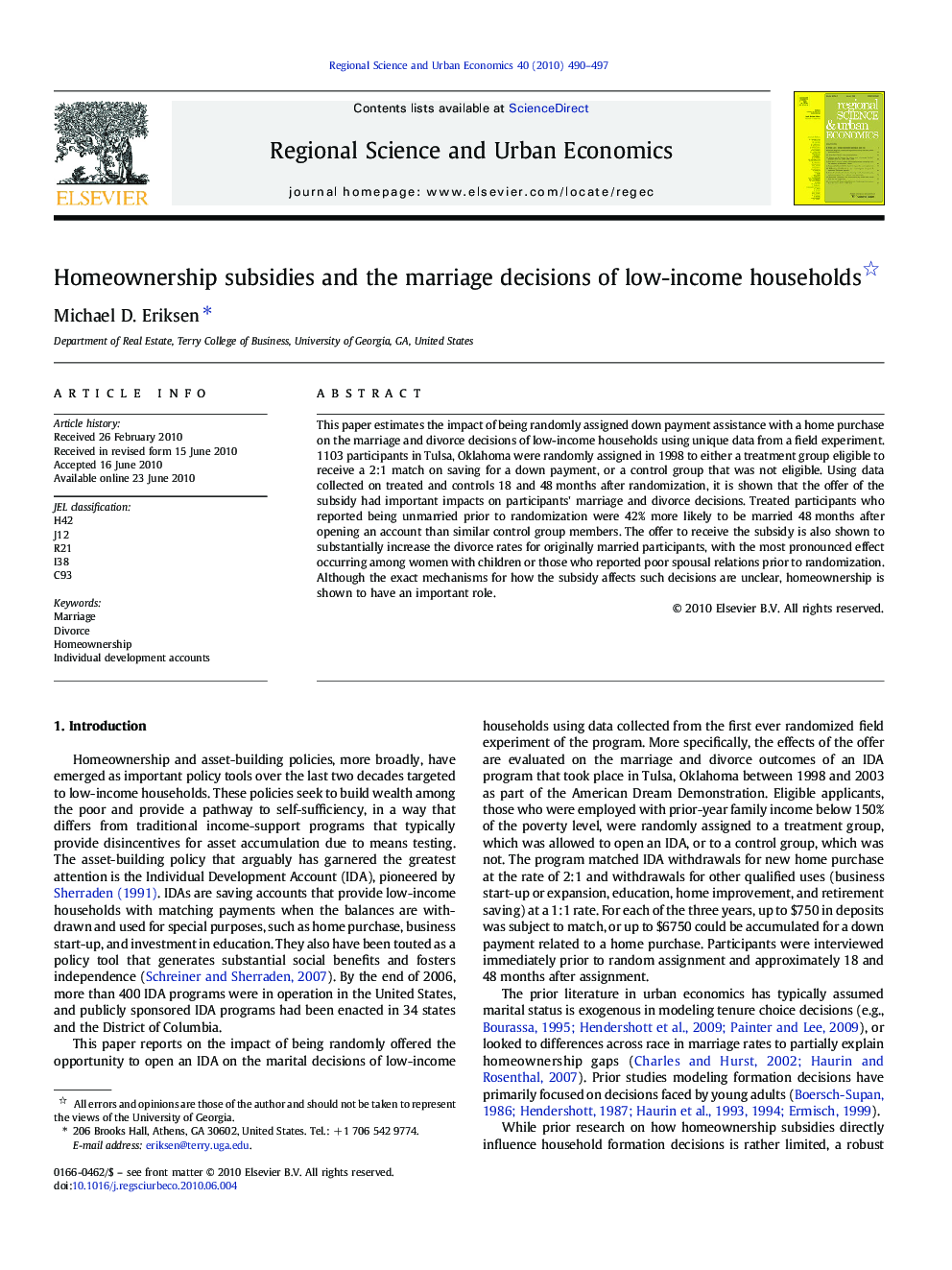| Article ID | Journal | Published Year | Pages | File Type |
|---|---|---|---|---|
| 983805 | Regional Science and Urban Economics | 2010 | 8 Pages |
This paper estimates the impact of being randomly assigned down payment assistance with a home purchase on the marriage and divorce decisions of low-income households using unique data from a field experiment. 1103 participants in Tulsa, Oklahoma were randomly assigned in 1998 to either a treatment group eligible to receive a 2:1 match on saving for a down payment, or a control group that was not eligible. Using data collected on treated and controls 18 and 48 months after randomization, it is shown that the offer of the subsidy had important impacts on participants' marriage and divorce decisions. Treated participants who reported being unmarried prior to randomization were 42% more likely to be married 48 months after opening an account than similar control group members. The offer to receive the subsidy is also shown to substantially increase the divorce rates for originally married participants, with the most pronounced effect occurring among women with children or those who reported poor spousal relations prior to randomization. Although the exact mechanisms for how the subsidy affects such decisions are unclear, homeownership is shown to have an important role.
